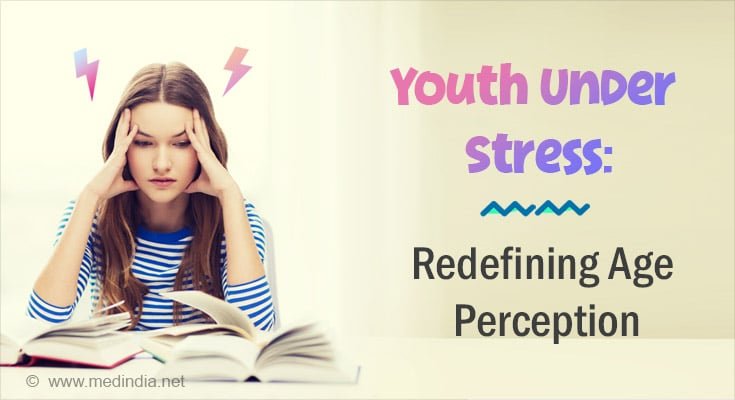Insights into Younger Adult’s Struggles

- Stress affects younger adult’s perception of aging, not just seniors
- Feeling of aging correlates with reduced control over life during stressful times
- Personal norms shape how stress impacts subjective age
It comes with no surprise that stress has become an omnipresent companion, affecting individuals of all ages. However, recent research sheds light on a concerning trend among younger adults: the link between stress, perceived control, and the feeling of aging.
A study conducted by Shevaun Neupert, a psychology professor at North Carolina State University, along with her team, highlights the impact of stress on the perceived age of younger adults. Published in the journal Mental Health Science, the study, titled “The Effect of Control Beliefs on the Relationship between Daily Stressors and Subjective Age in Younger Adults,” delves into uncharted territory by exploring how stress affects the way younger individuals perceive themselves (1✔ ✔Trusted Source
The effect of control beliefs on the relationship between daily stressors and subjective age in younger adults
).
Traditionally, the association between stress and aging has been extensively studied in older adults. However, Neupert’s research bridges the gap, emphasizing that stress-induced feelings of aging are not exclusive to seniors but also affect individuals in their younger years.
The study involved 107 participants aged 18 to 36, who provided insights through a baseline survey and an eight-day daily survey. What emerged from the data was striking: on days marked by heightened stress levels, participants reported feeling and looking older—but only when coupled with a perception of reduced control over their lives.
This finding underscores the intricate relationship between stress, perceived control, and subjective age. It suggests that the feeling of aging is not solely determined by external factors but is deeply intertwined with an individual’s sense of control over their circumstances.
Personal Norms and Perceived Control: Key Influencers
What sets this research apart is its emphasis on personal norms. Stress and control levels were evaluated relative to individuals’ unique standards, highlighting the subjective nature of these experiences. Sofia Lee, a former NC State undergraduate and the first author of the study, further emphasizes the importance of considering personal contexts when assessing the impact of stress on subjective age.
The implications of this study are profound, particularly in light of rising stress levels observed among younger generations. In an era marked by unprecedented challenges and uncertainties, the mental and physical well-being of younger adults is increasingly at risk.
Neupert emphasizes the need for interventions to safeguard the health of younger adults as they navigate the transition from early adulthood to midlife. Chronic stress, if left unchecked, can have detrimental long-term consequences, affecting both physical health and psychological resilience.
Implications and Calls for Action
The significance of this research extends beyond academic circles. It calls for a reevaluation of societal attitudes towards stress and aging, challenging the notion that these concerns are exclusive to older demographics. By recognizing the impact of stress on subjective age, we can take proactive steps towards promoting resilience and well-being across all age groups.
Advertisement
The project, supported by NC State’s College of Humanities and Social Sciences, serves as a testament to the importance of interdisciplinary collaboration in addressing complex societal issues. It underscores the role of psychology in understanding human behavior and informing evidence-based interventions aimed at fostering a healthier, more resilient society.
As we confront the challenges of the modern world, let us heed the insights offered by this research. By empowering individuals with the tools to manage stress and cultivate a sense of control over their lives, we can strive towards a future where age is not defined by external pressures but by the resilience and vitality of the human spirit.
Advertisement
By recognizing the impact of stress on subjective age, we can take proactive steps towards promoting resilience and well-being across all age groups.
Reference:
- The effect of control beliefs on the relationship between daily stressors and subjective age in younger adults – (https://onlinelibrary.wiley.com/doi/10.1002/mhs2.56)
Source-Medindia
Source link
#Insights #Younger #Adults #Struggles



